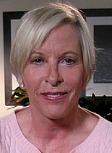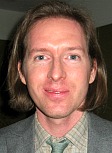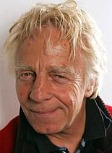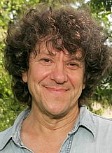L.M. Kit Carson, the legendary Texas screenwriter, actor, documentarian, short-film impresario (Direction Man), hotshot journalist, ex-husband of Karen Black, father of Hunter Carson, a kind of godfather to Wes Anderson and Owen Wilson in ’93 and ’94, Guillermo del Toro pally and a personal friend (we first met around ’87 when I was working at Cannon Films), died last night after a long illness. Hugs, tears…I’m sorry. Kit was a good egg. Always with a grin and some kind of sly, wise-man quip. Condolences to Hunter (with whom I corresponded about Direction Man last year) and Kit’s wife Cindy Hargraves and the general sprawling family of friends and acquaintances.
Carson began as a movie-realm journalist and documentarian (David Holzman’s Diary, American Dreamer) and gradually ambled his way into screenwriting. He had the vibe and the touch. He understood how it all was supposed to be, or could be. I don’t know where he “was” over the last decade or so, but in the ’80s and ’90s he always seemed to have the whole equation in his head.
The early to mid ’80s were Carson’s peak years when he co-wrote Jim McBride‘s Breathless (a 1983 remake of the 1959 Jean-Luc Godard original with Richard Gere) and Wim Wenders‘ Paris, Texas and a thing called Chinese Boxes that I’ve never even seen, and then came that wonderful Texas Chainsaw Massacre 2 screenplay, which was a dry, darkly comedic kill-the-yuppies thing that was heralded in an issue of Film Comment (it might have been Harlan Jacobson who wrote “it’s okay to like it”). But alas, director Tobe Hooper came along and fucked it all up when Cannon decided to make it.
Carson bounced back into a kind of Godfather-like cultural prominence when he helped Wes Anderson and Owen Wilson obtain funding (partly from Woodstock impresario Michael Lang) for extra shooting on the original back-and-white Bottle Rocket, and then he took them and their short to Sundance and got it seen by Barbara Boyle and eventually Polly Platt, who then showed it to James L. Brooks. This led to Brooks producing Bottle Rocket as a mainstream Sony feature and the launch of Wes and Owen’s career.
And then in ’95 Kit brought Direction Man, an abridged version of a random encounter video that John Pierson had originally presented on the tube, to the Sundance Film Festival — one of my all-time-peak Sundance moments.
Guillermo had visited Kit in the hospital not too long ago and suggested I get in touch. I did but only by email — I should have tried harder. Kit was good to me. He was close to what most of us would call a friend. He got me. We initially bonded over the dry comic tone of the Texas Chainsaw Massacre 2 press kit that I wrote in ’86 when I was at Cannon. We shared a lot of laughter. He tried to usher me into screenwriting in ’88 but it didn’t take. Kit, Anne Thompson and myself shared some time together at the Vail Film Festival…what was that, six or seven years ago?
Kit smoked too many goddamned cigarettes (Winstons) for too many decades. He finally quit in…I’m not sure but sometime around the turn of the century? Before? A bit after?
David Holzman’s Diary (’68), which Carson co-wrote and starred in, was a dry, self-mocking kind of thing. You can call it “the first mockumentary” if you want to.
The Texas-born Carson co-founded the USA Film Festival in Dallas. I’d forgotten about that
As an actor he had quickies in Running on Empty, episode of Miami Vice and Chinese Boxes.
From an HE piece called “Once Upon A Time“…
It’s fairly common knowledge that the key movers and shakers in turning Wes Anderson and Owen Wilson‘s Bottle Rocket (’96) into a “go” feature were the late Polly Platt, producer-screenwriter L.M. Kit Carson and concert promoter and Woodstock ’69 maestro Michael Lang. In the wake of Platt’s death, I thought I’d re-tell the story one more time for the record. I discussed it with Carson today, and heard from Anderson online. Lang didn’t get back.




(l. to r.) The late Polly Platt, Wes Anderson, the late L.M. Kit Carson, Michael Lang.
Bottle Rocket was green-lighted because Carson slipped the 13-minute black-and-white Bottle Rocket short — directed by Anderson, co-written by Wes and Owen and exec produced by Carson and Lang — to Platt in early ’94. The short had just played at Sundance, and Platt was involved in cutting the doomed musical I’ll Do Anything with director James L. Brooks.
Carson had seen a few minutes of rough footage that Anderson had shot, and convinced Lang to invest $7500 to pay for the short’s production costs.
“Polly was the person who persuaded Jim Brooks to watch the Bottle Rocket short during lunch break,” says Carson. “They were in the editing room on I’ll Do Anything, and she stuck the tape into a VHS player and and made him watch it. When it ended Brooks looked up and said, ‘What’s anybody waiting for? Make a deal. This is a go picture.’ No-shit-thanks, Polly Platt, for this movie.”
Here’s part 1 and part 2 of the original Bottle Rocket short.
“Wes and Owen had showed me some rough footage,” Carson recalls. ” It wasn’t even a cut-together film. I got Michael Lang to write a check for $7500, and we took that and re-shot the short.” Current Sundance honcho John Cooper was a programmer at the time, and he told Carson’s partner Cynthia Hargrave that the short “‘has to be 13 minutes and no longer” so that’s the length they cut it to.
After the Sundance showing Carson sent the tape to Platt at the recommendation of producer Barbara Boyle, who’s now a senior professor/chair/something-or-other with UCLA’s film program.
Bottle Rocket being greenlighted by Brooks and Columbia “was a major moment….a comet coming out of the universe and hitting Wes Anderson on his left shoulder,” says Carson. And yet despite this history relations cooled between Anderson and Carson during shooting, and pretty much ceased after the film was released. Vague vibes, no reciprocity or keeping in touch over future projects.
“My favorite moment with Wes — relatively recently, I mean — was around the time of the release of The Darjeeling Limited,” Carson relates. “I was on the phone with Roman Coppola, and he said, ‘Someone wants to talk to you.’ And Wes got on the line and said, ‘Roman says I should say thank you.'”
I wrote Anderson about this anecdote and he wrote back as follows: “I don’t recall the conversation Kit refers to but I was very happy to see him in LA during that time and [I] still miss him.” Anderson, currently shooting Moonrise Kingdom in New England, said he’d rather not be quoted about Platt’s passing. “Some people have been asking me for comments but really don’t wish to share anything for now,” he said.
